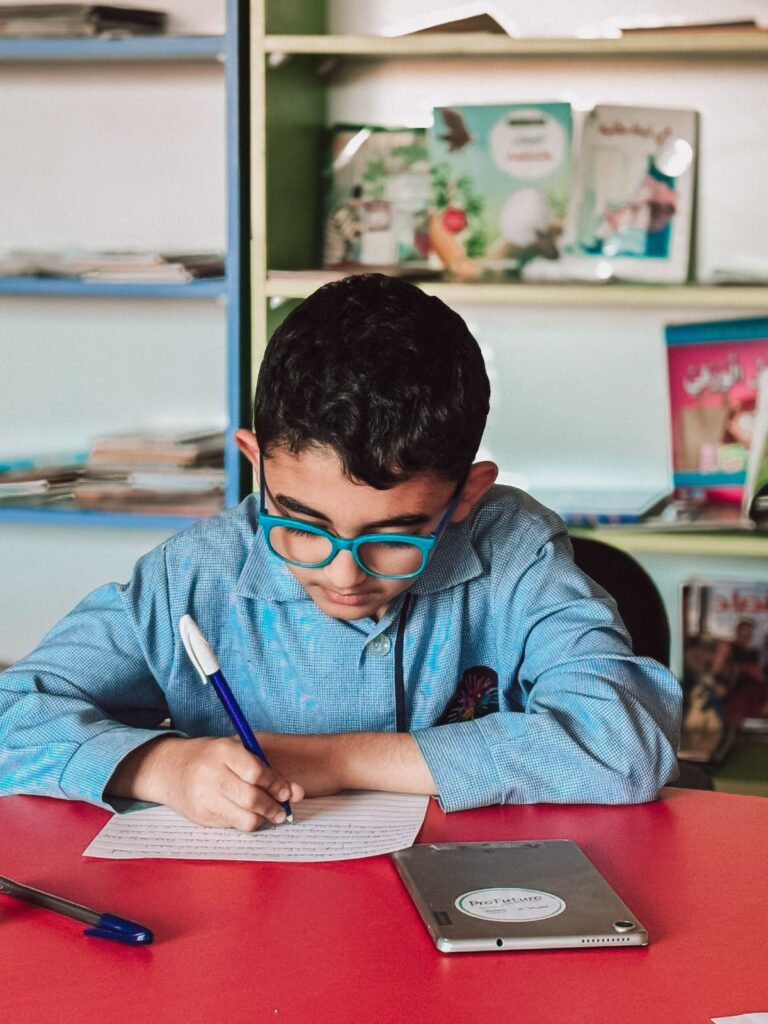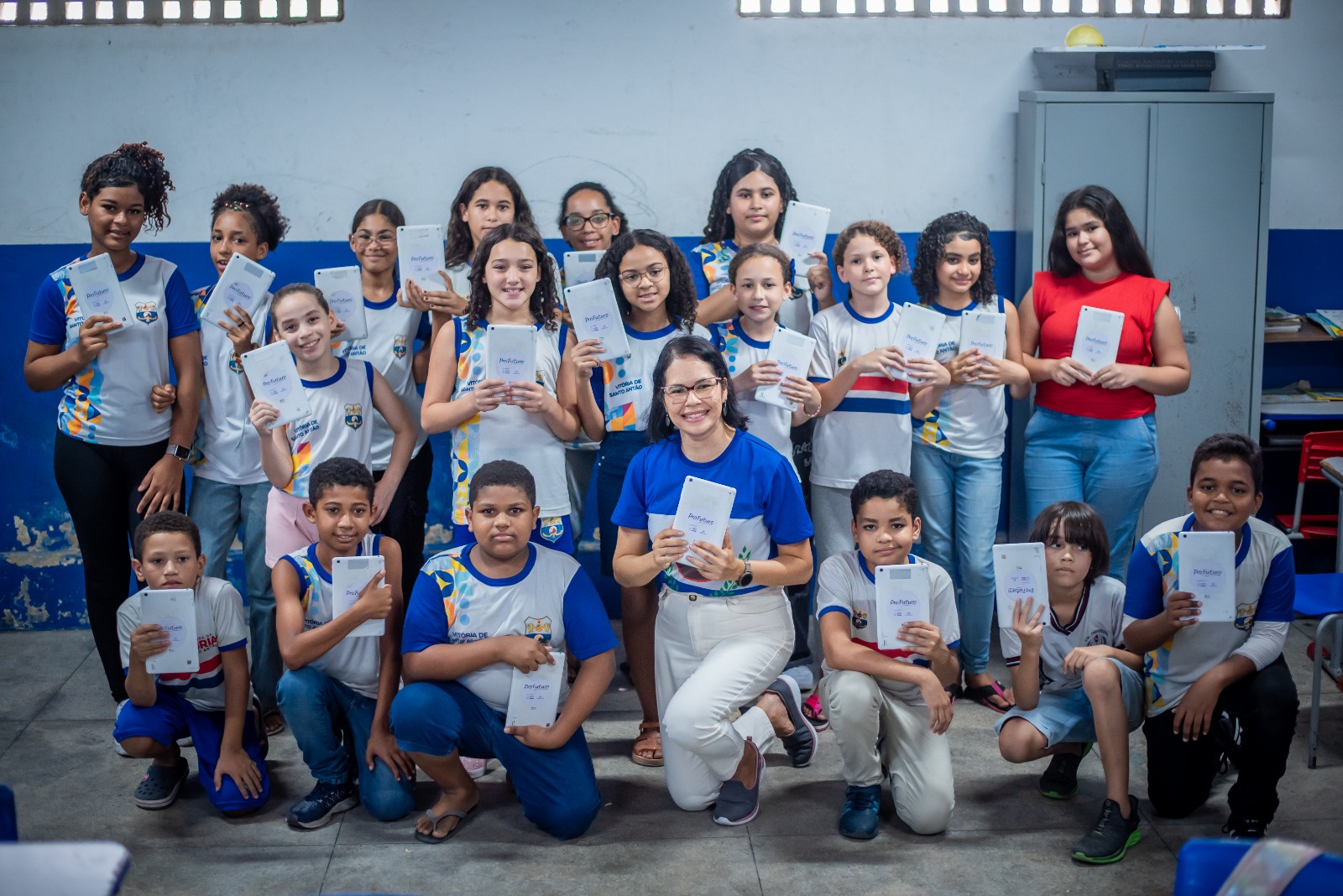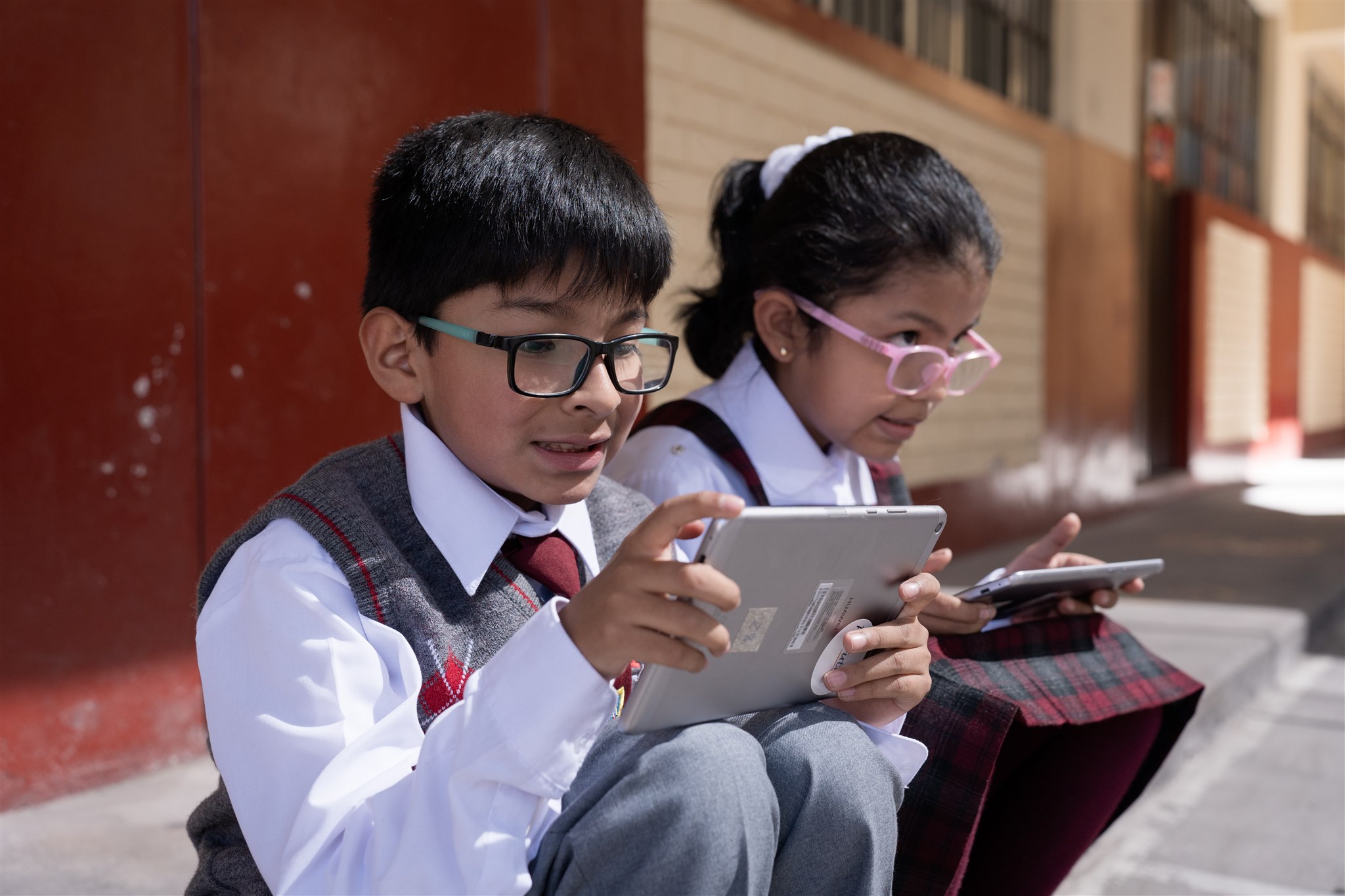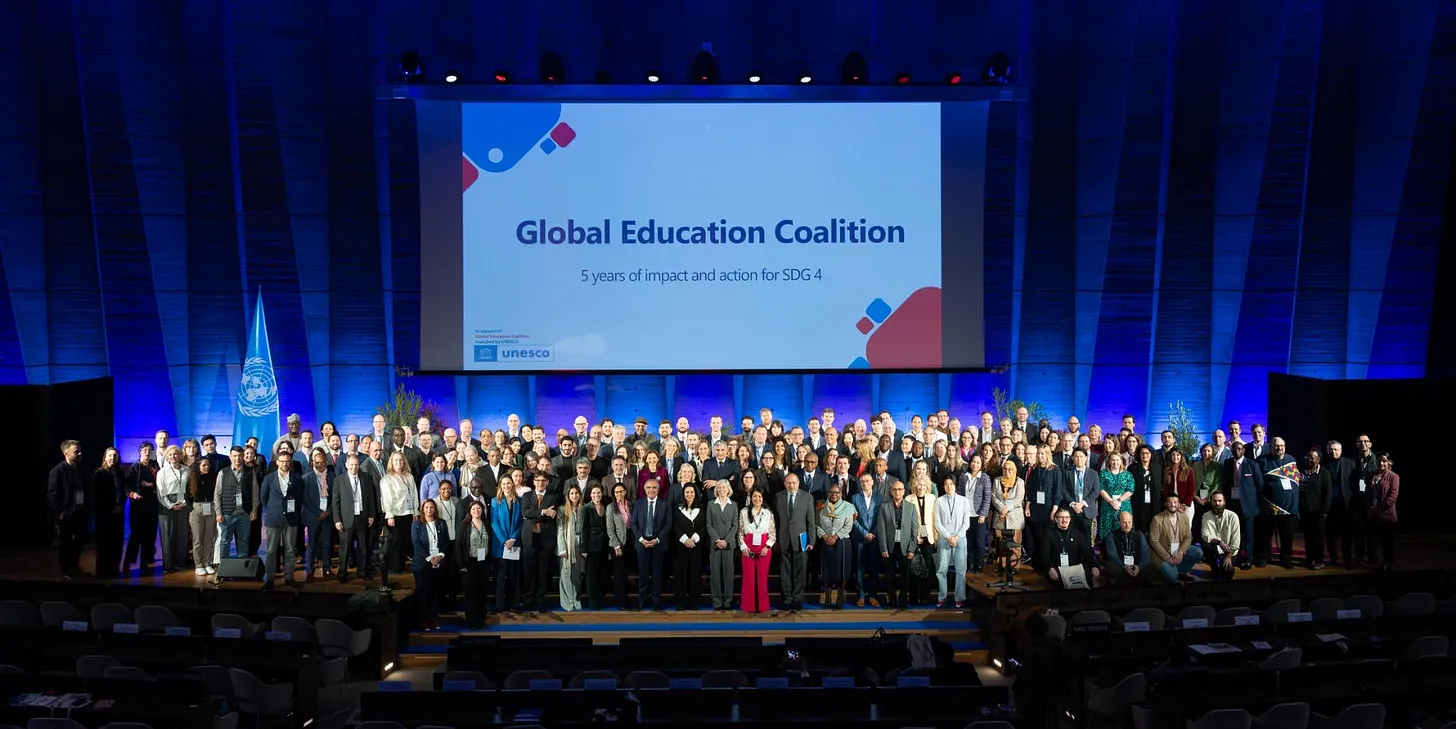Access to inclusive and safe digital education is an extension of the universal right to education. This approach encourages children to acquire not only technological skills, but also ethical values, critical thinking and a responsible understanding of the digital environment. Digital education should be a tool to protect children from online risks and to encourage their active participation in the digital society.
Fundación Telefónica and Fundación “la Caixa” work in 27 countries to make these principles a reality. Through ProFuturo, their educational innovation programme using technology, they bring digital resources and teacher training to more than 3,000 schools in vulnerable contexts, ensuring that millions of children can learn, create and thrive on equal terms. Their work focuses on promoting equitable and transformative digital education that puts children at the centre.
In Malawi, in the Dzaleka refugee camp, where ProFuturo works to ensure quality education and a safe learning environment in the camp’s only primary school, the testimony of 11-year-old Gloria Tshipata reflects this impact. “School is important to me because it teaches me for the future and I can be successful when I grow up. When I grow up, I want to be a doctor so I can treat sick people,‘ she says. ’I use technology: tablets are fun and I like doing activities with them; I learn lots of interesting things that have helped me to become more knowledgeable.” In this emergency context, ProFuturo ensures the educational continuity of children aged 9 to 12 with digital resources and trained teachers.

In Akkar, at Al Maymouna School, the testimonies of Khaldoun Al Masri (12), Maria Al Hassan (10), Obayda Abdo (10) and Aleen Omari (10) reinforce this idea: Khaldoun wants to be an engineer, he is inspired by his aunt and uses ProFuturo’s maths games to practise and understand better; Maria aspires to be a graphic designer and values being able to repeat activities until she masters them — ‘they make the lesson easy to learn’; Obayda dreams of becoming a doctor, improving her communication in English and Arabic, and emphasises that ‘the tablet gives me videos, photos and exercises that explain the lesson in a simple way’; and Aleen, motivated by her parents, wants to be a doctor and finds ProFuturo a fun and interactive learning experience that makes school her ‘second home’.
Carmen, who lives in Equatorial Guinea, where ProFuturo has been working for years, also dreams of becoming a children’s rights lawyer: ‘There are some children who I don’t like to see how they are treated, so that’s why I’ve decided to become a children’s rights lawyer.’ Her vocation came from within herself and now, at the age of 12, she is inspired by watching channels featuring lawyers. Her favourite subjects are Mathematics and Natural Sciences, and ProFuturo’s tablets have particularly helped her in Social Sciences: ‘the tablets help me learn a little better’.
In Latin America, the voice of the digital classroom also fuels diverse dreams. Within the project promoted in the Cajamarca region of Peru, a village surrounded by mountains more than 900 kilometres from Cuzco, 11-year-old Luis dreams of becoming a civil engineer. At school, he is most excited about subjects such as Maths and Physical Education. ‘I like maths: we learn a variety of things, we learn to multiply, divide, powers, and much more,’ he explains.
With ProFuturo tablets, Luis also explores science, where he enjoys learning about the environment, animals and plants; and in communication, he is passionate about telling and reading stories. Technology, combined with his curiosity, opens up ways for him to express himself, reason and create. Jordan, 10, one of five siblings, also envisions a future in art and engineering. He also wants to be an engineer, but a mining engineer, inspired by his uncle.
He says that, with tablets, he especially enjoys Maths: ‘I like it because we do addition, subtraction and multiplication.’ In Science, he is attracted to learning about plants and human beings; and in Communication, he likes to read and narrate texts. His testimony shows how ProFuturo’s digital environment promotes skills-based work, combines play and learning, and strengthens confidence to pursue goals.
On a day dedicated to children’s rights, both institutions remind us that digital education is also about protection: guaranteeing access, safety and inclusion in the technological sphere ensures that children’s rights are fully exercised in the 21st century. Furthermore, promoting open educational resources, teacher training in digital skills and student participation in technological decisions ensures that digital transformation reinforces equity, inclusion and better learning outcomes.






